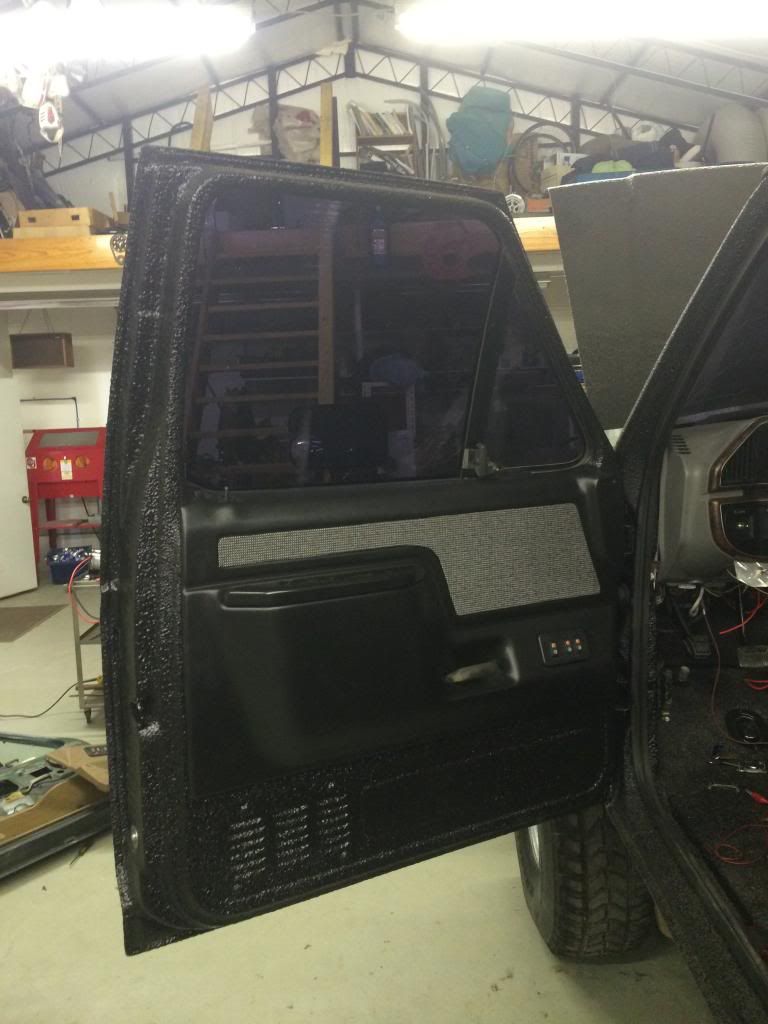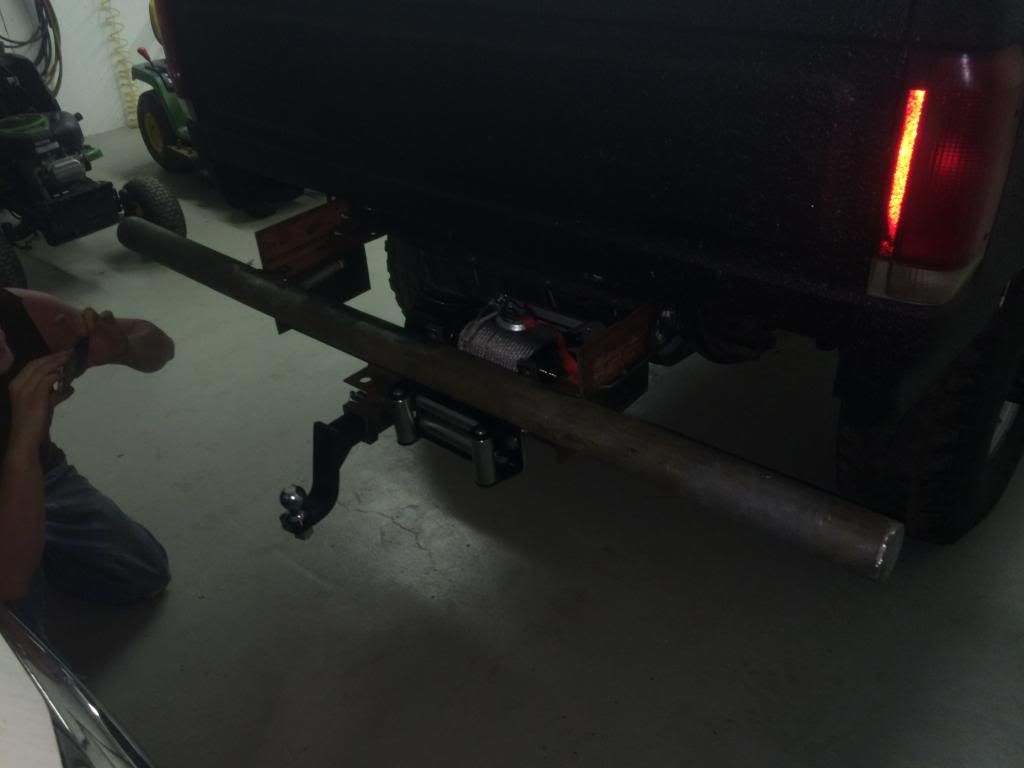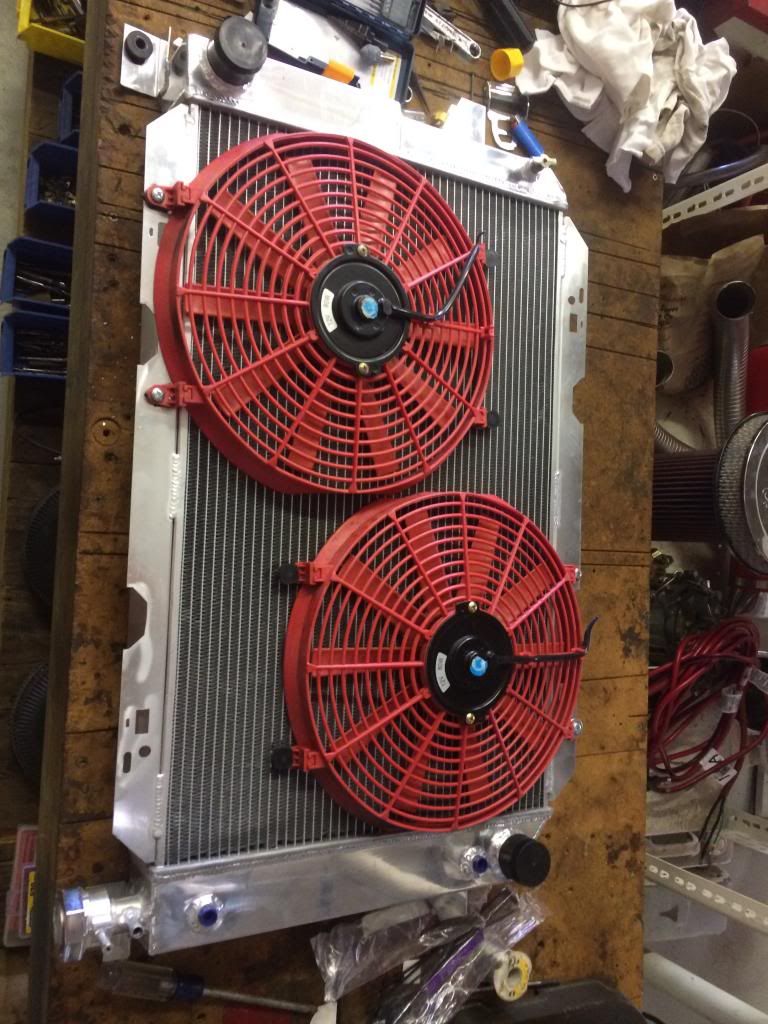 05-03-2014, 12:13 AM
05-03-2014, 12:13 AM
|
#81 (permalink)
|
|
EcoModding Lurker
Join Date: Mar 2014
Location: okc
Posts: 49
Thanks: 22
Thanked 15 Times in 12 Posts
|
think im set on this particular quadrajet, a little tweaking left to do but its getting very close.
got a ton of stuff left to do on this truck but getting somewhere
heres a few pics:
[IMG]  [/IMG]
[IMG]  [/IMG]
[IMG]  [/IMG]
more progress and pics later. with a tuned up carb i can begin alternative fuel testing. just needs a few tweaks on idle and secondaries.
just found this
Last edited by dustyfirewalker; 05-03-2014 at 01:41 AM..
|
|
|

|
 Today Today
|
|
|
|
 Other popular topics in this forum...
Other popular topics in this forum...
|
|
|
|
 05-03-2014, 11:01 AM
05-03-2014, 11:01 AM
|
#82 (permalink)
|
|
Corporate imperialist
Join Date: Jul 2011
Location: NewMexico (USA)
Posts: 11,312
Thanks: 273
Thanked 3,581 Times in 2,844 Posts
|
Quote:
Originally Posted by Frank Lee

The funny part is, even though the crank and some other bits on the colossal engines are moving slow, the pistons are going just as fast as on wee little screaming engines. Since the ring pack is one of the- if not the- biggest sources of internal friction, the efficiency advantage of the colossus isn't from that.
|
Thats why I run ultra low tension oil rings on my diesel.
__________________
1984 chevy suburban, custom made 6.5L diesel turbocharged with a Garrett T76 and Holset HE351VE, 22:1 compression 13psi of intercooled boost.
1989 firebird mostly stock. Aside from the 6-speed manual trans, corvette gen 5 front brakes, 1LE drive shaft, 4th Gen disc brake fbody rear end.
2011 leaf SL, white, portable 240v CHAdeMO, trailer hitch, new batt as of 2014.
|
|
|

|
 05-03-2014, 11:12 AM
05-03-2014, 11:12 AM
|
#83 (permalink)
|
|
Corporate imperialist
Join Date: Jul 2011
Location: NewMexico (USA)
Posts: 11,312
Thanks: 273
Thanked 3,581 Times in 2,844 Posts
|
The reason I dont believe in vapor engines is if they offered such a great advantage then why dont propane and natural gas engines offer any advantage over gasoline engines?
If you had a turbodiesel you would have a high compression engine capable of incinerating most heaver fuels, built in waste heat recovery with the ability to expand waste heat recovery, the ability to burn e85, ethanol, methanol, natural gas, propane, gasoline with intake fumigation.
And run water injection and actually have it deliver measurable gains.
__________________
1984 chevy suburban, custom made 6.5L diesel turbocharged with a Garrett T76 and Holset HE351VE, 22:1 compression 13psi of intercooled boost.
1989 firebird mostly stock. Aside from the 6-speed manual trans, corvette gen 5 front brakes, 1LE drive shaft, 4th Gen disc brake fbody rear end.
2011 leaf SL, white, portable 240v CHAdeMO, trailer hitch, new batt as of 2014.
|
|
|

|
 05-03-2014, 11:17 AM
05-03-2014, 11:17 AM
|
#84 (permalink)
|
|
Master EcoModder
Join Date: Nov 2012
Location: San Diego, California
Posts: 982
Thanks: 271
Thanked 385 Times in 259 Posts
|
The larger engines see proportionally less ring friction.
Quote:
Originally Posted by Frank Lee

The funny part is, even though the crank and some other bits on the colossal engines are moving slow, the pistons are going just as fast as on wee little screaming engines. Since the ring pack is one of the- if not the- biggest sources of internal friction, the efficiency advantage of the colossus isn't from that.
|
Displacement grows in a cubic function while ring sweep is a squared function. |
|
|

|
 05-03-2014, 11:22 AM
05-03-2014, 11:22 AM
|
#85 (permalink)
|
|
Master EcoModder
Join Date: Nov 2012
Location: San Diego, California
Posts: 982
Thanks: 271
Thanked 385 Times in 259 Posts
|
I may not agree with Firewalkers methodology.
Quote:
Originally Posted by oil pan 4

The reason I dont believe in vapor engines is if they offered such a great advantage then why dont propane and natural gas engines offer any advantage over gasoline engines?
If you had a turbodiesel you would have a high compression engine capable of incinerating most heaver fuels, built in waste heat recovery with the ability to expand waste heat recovery, the ability to burn e85, ethanol, methanol, natural gas, propane, gasoline with intake fumigation.
And run water injection and actually have it deliver measurable gains.
|
But, his goal is not absurd. If you have a cheap and plentiful source of heavy oils, a vehicle that can run on it would be valuable.
And, I have made discussion of vapor engines in other threads and they do provide greater efficiency and not because of production of vapors. |
|
|

|
|
The Following User Says Thank You to RustyLugNut For This Useful Post:
|
|
 05-03-2014, 11:23 AM
05-03-2014, 11:23 AM
|
#86 (permalink)
|
|
In Lean Burn Mode
Join Date: Apr 2009
Location: Pacific NW
Posts: 1,561
Thanks: 1,336
Thanked 613 Times in 400 Posts
|
Looks like your making some headway?
Enjoying the pics!!!
Keep up the good work 
__________________
Pressure Gradient Force
The Positive Side of the Number Line

|
|
|

|
|
The Following User Says Thank You to pgfpro For This Useful Post:
|
|
 05-03-2014, 12:12 PM
05-03-2014, 12:12 PM
|
#87 (permalink)
|
|
EcoModding Lurker
Join Date: Mar 2014
Location: okc
Posts: 49
Thanks: 22
Thanked 15 Times in 12 Posts
|
Quote:
Originally Posted by oil pan 4

The reason I dont believe in vapor engines is if they offered such a great advantage then why dont propane and natural gas engines offer any advantage over gasoline engines?
If you had a turbodiesel you would have a high compression engine capable of incinerating most heaver fuels, built in waste heat recovery with the ability to expand waste heat recovery, the ability to burn e85, ethanol, methanol, natural gas, propane, gasoline with intake fumigation.
And run water injection and actually have it deliver measurable gains.
|
i would say the advantages of propane and CNG at this point is just a cheaper cleaner fuel. most experience a power loss bc they dont have a compression ratio capable of taking advantage of their anti knock capabilities. bc they dont have an engine idealized for those specific fuels they dont get the most out of the fuel. also they may not get the MPG's they get with gasoline for the same reason. we all know those engines run in stock form, i have seen a few people go nuts with compression ratios and turbos on propane or cng and get power, but not sure about mpg.
i agree that the diesel cycle is superior. it makes 100% sense to only push on the piston when it goes down. with a good compression ratio and no possibility of detonation. i also dont doubt that with a high enough compression ratio, the right fuel pump+injectors you could burn syrup as fuel haha.
typical carbs mix fuel and air to attempt making a flammable vapor. if i can just get the typical heavy waste oil hot enough it will have some properties similar to gasoline. and in its vaporized or smoked form it will be similar to woodgas, in my previous videos watch "chemistry of fire"
thanks for the comments guys. after finals ill be spending alot more time on the truck this summer |
|
|

|
 05-03-2014, 12:20 PM
05-03-2014, 12:20 PM
|
#88 (permalink)
|
|
Corporate imperialist
Join Date: Jul 2011
Location: NewMexico (USA)
Posts: 11,312
Thanks: 273
Thanked 3,581 Times in 2,844 Posts
|
Wont heating the heavy oils leave slug and carbon deposits in all kinds of places where you dont want them?
__________________
1984 chevy suburban, custom made 6.5L diesel turbocharged with a Garrett T76 and Holset HE351VE, 22:1 compression 13psi of intercooled boost.
1989 firebird mostly stock. Aside from the 6-speed manual trans, corvette gen 5 front brakes, 1LE drive shaft, 4th Gen disc brake fbody rear end.
2011 leaf SL, white, portable 240v CHAdeMO, trailer hitch, new batt as of 2014.
|
|
|

|
 05-03-2014, 12:26 PM
05-03-2014, 12:26 PM
|
#89 (permalink)
|
|
Master EcoModder
Join Date: Jan 2012
Location: United States
Posts: 1,756
Thanks: 104
Thanked 407 Times in 312 Posts
|
Quote:
Originally Posted by Frank Lee

The funny part is, even though the crank and some other bits on the colossal engines are moving slow, the pistons are going just as fast as on wee little screaming engines. Since the ring pack is one of the- if not the- biggest sources of internal friction, the efficiency advantage of the colossus isn't from that.
|
The ring pack has more friction than any other single "area", but it only contributes ~25% of the total friction, so there are significant gains from the rest of the engine turning slow. In particular, the piston skirts are typically the next biggest source of friction, and that source of friction is cut down tremendously with a slower engine. |
|
|

|
 05-03-2014, 12:40 PM
05-03-2014, 12:40 PM
|
#90 (permalink)
|
|
EcoModding Lurker
Join Date: Mar 2014
Location: okc
Posts: 49
Thanks: 22
Thanked 15 Times in 12 Posts
|
Quote:
Originally Posted by oil pan 4

Wont heating the heavy oils leave slug and carbon deposits in all kinds of places where you dont want them?
|
yes i dont think the intake path will be nice and clean like i want, but what really got me thinking about how bad this would be is when i did knock sensors on my (completely stock) 5.3 IT WAS GROSS IN THERE. i scrapped out so much black crap from the black plastic intake manifold and thought to myself how did this thing ever breathe like this? also waynes woodgas setups use a hay filter because the deposits that can form are sticky. the woodgas guys say the test between tar and soot is to put it between your fingers and rub it around. the tar will become sticky and hot between your fingers and you know this will kill your valves and even stick your throttle plates. i tired the same thing with the intake deposits on my chevy, never got exactly the same feeling as the tree sap substance they talk about, more like a harder somewhat cooked grease. it still seemed like it wasnt sticky but more like a dirty black butter or something lol
but on my chevy, just an egr and fuel injection and it was full of black carbon. so what i have yet to really figure out is this: the deposits formed from vaporizing oils, are those deposits as bad as woodgas deposits capable of being sticky friction increasing tars? or are they just going to be there and not really hurt anything but flow like in my chevy? i dont know but i will find out. im going to be using some method of heating the intake charge, air and fuel will get very hot, then go into the engine. it might be like my chevy where every 100,000 miles or so everything needs a good clean.
so i do expect deposits to form, if its a big or little issue i do not know yet. before the engine gets ruined its easy to pick up on the signs of the nature of those deposits though. by inspecting and testing the deposits you can change things before they cause damage.
|
|
|

|
|